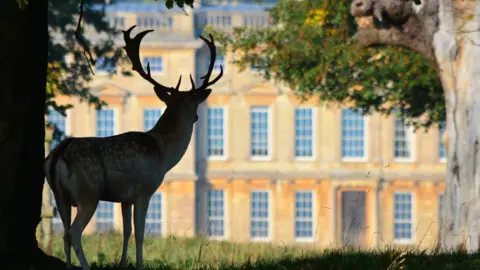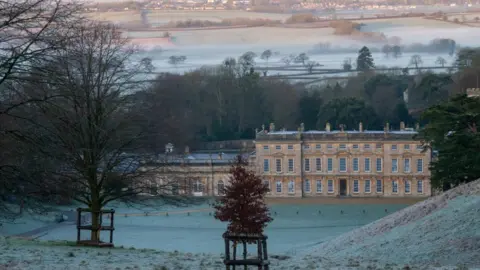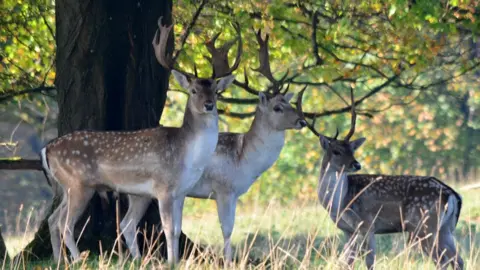Bovine TB leads to Dyrham Park deer herd being culled
 Picasa
PicasaAn entire herd of deer at an historic park has been culled due to an outbreak of bovine tuberculosis (bTB).
The 70 deer at Dyrham Park were put down after a 10-year battle by estate staff to stop the disease spreading.
There has been a herd at the park, between Bristol and Bath, for 300 years.
National Trust officials said they were "devastated" to lose the animals and appreciated the news would be "distressing" for visitors.
 National Trust
National TrustThe disease was first detected at the park in 2007 but despite efforts to try to control it, infection rates have continued to rise.
The National Trust said over the past decade measures including adding extra fencing, carrying out a badger vaccination programme and stopping cattle grazing in the park had all been tried, without success.
Dyrham Park's general manager, Tom Boden, said: "Today is an incredibly tough day and it is with a very heavy heart that we are sharing the very sad news.
"Following a rigorous review with the government's Animal and Plant Health Agency (APHA), experts and staff we were very sadly been left with no choice but to make the very difficult decision to humanely cull the entire deer herd. "
There is no vaccine to protect deer against the highly-contagious disease, which can make them emaciated and vulnerable to other infections.
'Extremely distressing'
"We understand that this decision will be extremely distressing for everyone that loves Dyrham, our visitors, volunteers and staff," Mr Boden added.
The Grade I listed building, Dyrham Mansion, is part of the park, which attracts around 250,000 visitors every year.
The National Trust said it was the first cull of an entire herd at one of its properties since 2001 at Charlecote in Warwickshire.
 Picasa
Picasa